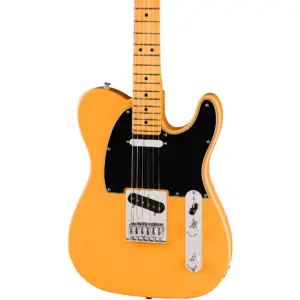If you ever told your folks that you’re gonna be playing the guitar for a living, chances are they’d laugh at you if they’re one of the easygoing ones. If they’re anything like the stereotypical Indian parents, they’re gonna ask you to concentrate on your studies and stop coming up with vague ideas. If they’re one of the violent ones, you might even have your guitar’s fretboard separated from its body! Are they wrong to do that? Not from their perspective. Destroying your guitar is certainly extreme, but them being angry at you can’t be deemed completely wrong.
There are millions of people across the world who’ve made music as a source for their bread and butter. Then be it by playing music or taking up administrative duties in the music business. The music industry, as a whole, is not a small one. But it isn’t the largest either. And in a country like India, the demographics are vastly different than that in the West. In general terms, the amount spent in producing music is not incredibly different, but the profits (If any) is!
So let’s get down to the point of this piece. Is a full-time career in the music business in India actually an option? The biggest question here is for you to ask yourself: “What are my expectations?”
On the road for 200+ days a year in a swanky tour bus, fame, money, sex and all that? That’s wishful thinking. Not to say it’s impossible, but certainly unrealistic. You need to first figure out where you stand as far as your skills as a musician or as an administrator stands. If you believe you have what it takes to make it big, you can take the plunge. But ALWAYS have a backup option.
Here are some things you need to know while you plan to make a career in the music industry in India:
- Record Labels / Management – There aren’t too many of them in the country. So as a musician, just understand that your chances of being signed to one are limited. Even when you do get signed, don’t expect them to pay for your studio time, Engineer, producer, artwork, etc. The chances of you becoming the queen of England is higher than you securing that kinda deal or something half as lucrative!
- Touring: The biggest difference in the business as per Riju Dasgupta (Albatross/Primitive) is the touring system. “Here we wait for promoters to get in touch with us. Out there, there are booking agents who plan tours over a month or so. Both systems have their pros and cons. But doing what they do is a lot better to spread the music, especially after a new release” he. We don’t have a lot of venues that support indie music here. It’s worse if you play a genre like Heavy-Metal. So it’s going to be a tough ask trying to get gigs. It’s going to be tougher when you’re trying to sort out a tour. And touring all year long is, well, being unrealistic.
When it comes to doing international tours, things only get tougher. “We spent from our own pockets (For Albatross’ Australian Tour), got paid across the 3 venues but it did not cover our travel cost. Everything on the ground was taken care of. We had a blast. Probably my most fun experience as a musician” says Riju. While it may be a great experience as a whole, it’s not something that you’d be looking to do often if the music is your only source of income.
- Fans: Now this depends on the kind of music you play. If you’re purely a metal musician and wish to keep it that way, you need to understand the limitations your fans have too. Most metalheads are college students. So they can’t afford to buy a lot of CDs or attend all your gigs. And once they graduate, they often can’t afford the time to attend all your gigs. The scenario is pretty similar even with other genres in the indie music scene too. “I see a lot of them still want free stuff! They are not willing to pay for original Music. Downloading stuff off the internet is far easier and they get it for free.” comments Rajni Shivaram (Vocalist, The Chronic Blues Circus). She says that people do appreciate a lot of music these days, but very few go beyond that and support them by actually buying their music.
As an administrator (Event Programmer, Artist Manager, booking agent, etc) in the music business, things still aren’t gonna be easy. But then again, nothing worth achieving ever comes easy! As mentioned before, the independent music scene in India still very small. So the number of administrators complement that. We have a few premiere Artist Management/Booking Agencies/Event Organizing firms and several independent promoters. If you manage to get onboard with one of these companies, you may not have a tough time earning a decent living. It may not pay you what a ‘regular’ job like that of an Engineer or as a doctor or a banker would, but it’s not necessary to be that way. Besides, if that’s what you want, then why not? Right?
Things aren’t gonna be that easy if you’re an independent promoter. Climbing the ladder to the top is gonna be a challenge here. Of course, it’s the same with everything else, but the risks involved are pretty high too! For example: Even putting up a club show could take weeks. From dealing with venues to booking the bands, sorting out the backline and production, etc to executing the event in a smooth way. If you’re smart or if lady luck favours you or both, you may get a sponsor or two. But you can rarely bank on that. According to Dushyant Dubey, the sole runner of Metalabad: “The only profits that can be realistically expected are from sponsorship vs. expenses. In cities like Ahmedabad, where venues (i.e places that already have sound and lights) don’t exist, the expenses are pretty high.” It’s important to understand that the monetary returns are never gonna be a surety. Even a bit of bad planning can lead to losses. There aren’t too many constants here, but this one risk is! If that’s not very encouraging, then maybe you should not be reminded of the fact that you can run into losses even after doing everything right!
There are a lot of ways to follow your dreams, do things you are passionate about and yet not risk being broke more often than not. When asked about how he wishes to go about playing music, Rajorshi, an independent musician from Kolkata said, “What I really want to do is start my YouTube channel, write some original music, do split screen videos and collaborative videos with other musicians over the internet. I’ve done that a few times already, and it’s the most fun I’ve had. Playing live is fun, but there’s too much work involved there, and the returns aren’t that good. It doesn’t allow the flexibility of time which home recording does. Since my degree is my first priority (and extremely time-consuming), this factor is important to me. I’d treats playing live like an occasional indulgence, rather than something regular.”
That’s a great way to continue doing what you love doing along with other things that you love doing. Rajorshi has no immediate plans of monetizing this passion of his. “I may cross over into teaching music part-time in the future, but that’s all,” he says. “The fact that I don’t have to depend on anyone’s patronage but my own is liberating to me, and enables me to focus all my efforts on whatever piece of music I choose,” he concludes.
Those mentioned above will give you an idea of how things work. Everything depends on how you look at them. Yes, there are silver linings. Not many are able to manage a living through music, but a few do. It worked for some. So it could work for you too. But playing safe won’t be a bad idea. Don’t quit on your studies/job, for out of millions that jump in the ocean; hardly a few make it to the shore on the other side of it. And that’s the harsh reality of not only the music industry but the entertainment business in general. If you feel like you’re making enough out of music and can sustain that, you can eventually take the plunge!








